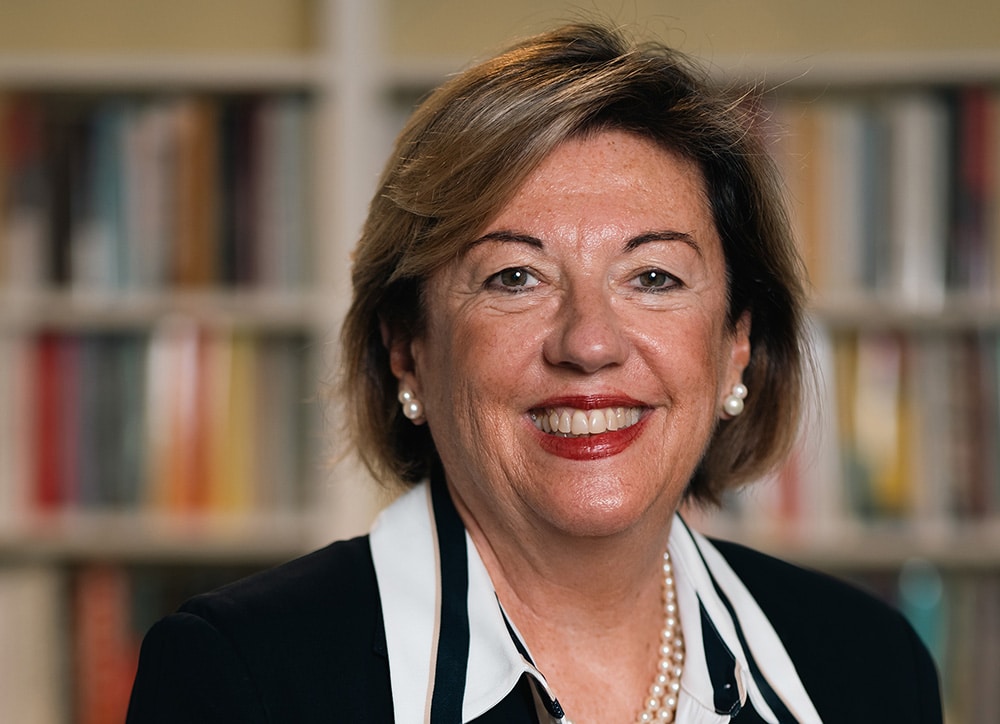By Faten Omar
KUWAIT: As the emergency in education continues to grow in lower-income countries, CEO of Global Partnership for Education (GPE) Laura Frigenti arrived in Kuwait as a part of her GCC tour to sign a key letter of intent regarding the education system and for high-level talks with leaders in key countries in Gulf. Kuwait Times spoke with Frigenti to learn more about GPE, which mobilizes partners and funds to support nearly 90 lower-income countries to transform their education systems and get 160 million more girls and boys in school.
Kuwait Times: When did the Global Partnership for Education start?
Frigenti: Founded in 2002, GPE is the world’s only partnership and fund entirely dedicated to education in lower-income countries. It was established initially as Education for All – FastTrack Initiative (EFA FTI) to accelerate progress on the Education for All goals, endorsed in 2000, and based on the recognition that education is crucial to building a more prosperous, secure and equal world. For two decades, GPE has been delivering funds and supporting solutions to build strong and resilient education systems in countries affected by extreme poverty or conflict so that more children, especially girls, get the education they need to thrive.
KT: How does GPE gather funding and how many students have you helped so far?
Frigenti: Every few years, GPE mobilizes resources from donors to replenish its fund to be able to give every child a quality education. Since 2002, 107 million students have benefitted and over 675,000 teachers received training, 56 million textbooks were distributed, 8,500 classrooms were built or renovated and 71 percent of GPE partner countries increased their share of education expenditure or maintained it at the 20 percent benchmark or above.
KT: Explain how GPE funding works at the country level.
Frigenti: GPE is one of the largest sources of grant aid for education in lower-income countries. We use our direct funding to leverage billions of dollars more in domestic and international financing — creating better opportunities for millions of children, their communities and their countries. GPE funding directly supports partner countries’ education strategies and plans, and GPE advocates aligning other development partners’ resources behind countries’ priorities.
KT: Tell us about the Kuwait visit and meeting with officials.
Frigenti: I am thrilled to have visited Kuwait and strengthened GPE’s relationship with one of our newest donor partners. Kuwait joined GPE as a donor in 2021, pledging $30 million, another example of the leadership we are seeing out of the Gulf region. We commend Kuwait’s scaling up of investments in education because a well-educated and properly skilled workforce is vital to diversify economies and fostering peaceful and prosperous societies.
GPE and Kuwait have co-financed a successful $63 million program in Nigeria, and I am hoping to create more opportunities for similar partnerships, including through the ACG SmartEd initiative that has generated $500 million to support education.
KT: How do you evaluate the level of education in Kuwait, and how can other countries learn from what Kuwait has achieved with its education system?
Frigenti: Kuwait engaged in a modernization program that addresses critical issues in Kuwait’s education system including curricular reform, the development of national assessment systems, the improvement of school leadership and the creation of professional standards. The world now needs more partnerships like the one between Kuwait and GPE, to ensure that any nation seeking to invest more in education will receive the amount and type of funding it needs, to enable access to more girls and boys and develop their learning opportunities.
Gulf countries have used education to help transform their societies into prosperous and generous nations and to place them now in a position to step up their support for schooling at a critical moment. We hope that other countries will follow some of the prominent countries in the GCC region in investing more in education, to give all girls and boys everywhere the skills to match the demands of a rapidly changing and ever more complex future.
KT: How do you think leading Arab countries can best contribute towards the development of education in lower-income countries?
Frigenti: As education needs spiral in the wake of COVID-19, conflict, and economic challenges and traditional donors retreat from the education space, Gulf countries have an important opportunity to step up their engagement in global education efforts through funding and political leadership in key international milestones. Saudi Arabia and Kuwait have already shown their willingness to be more actively involved by becoming new GPE donor countries, setting a foundation for future collaboration and investment.
Gulf countries are beginning to confront the rapidly growing skills mismatch that risks leaving millions of youths — particularly young women — underprepared for the future. But this remains a critical issue in the region. In Arab states, youth unemployment has climbed to 25 percent, while unemployment for young women has reached 40 percent.
This is a symptom of a far greater crisis. We face a deepening calamity in education, exacerbated by the impacts of COVID-19. Before the pandemic, around half the world’s 10-year-olds struggled to read and comprehend a basic story; today, that level is closer to 70 percent. Neglecting the plight of education across the globe will condemn a generation and leave us facing dire consequences socially, politically and economically.










